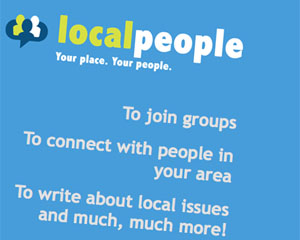As my colleague Laura mentioned in a news article earlier today, a blog post on the Manchester Evening News’ website by chief reporter David Ottewell, written in defence of the Salford Star, raises concerns about new hyperlocal sites. An extract:
There is a lot of talk these days about ‘hyperlocal’ sites. The idea is that journalists working in a small community can cover stories that might get lost at, say, a regional or local level.
Too often, though, these sites disappoint. They end up simply regurgitating press releases, or ripping off stories from local newspapers, because they are one-man bands run by amateurs who don’t have the time, resources, or sometimes skills to dig out the news.
As Ottewell probably could have anticipated, this has sparked off some lively and heated comment. Hyperlocal trainer and publisher Will Perrin answers with examples of his favourite local news sites. Philip John, the developer behind Journal Local and the Lichfield Blog, raises an important point about future collaboration with Trinity Mirror (something Trinity Mirror’s head of regional multimedia David Higgerson talked about at the recent Polis/BBC College of Journalism conference):
We are also now actively talking with Trinity Mirror publications about collaboration and I know we’re not the only ones. I mention it specifically because they’re your ‘sisters’ within the TM family now and you might want to ask why they are so openly embracing hyperlocal.
Nigel Barlow, the co-founder of the Manchester site InsidetheM60 also responds, inviting Ottewell to further discuss these issues:
The spirit of your blog is not really in the best interests of what David Higgerson has for some time been promoting as cooperation between the main stream media and the Independents.
You have to recognise that there are some endemic problems within the media industry which local and regional papers seem to be bearing the brunt of. Not all their fault I accept but stances like yours do not help. Attack is not always the best form of defence but I take heart from the fact that you notice us. If we weren’t on your radar then surely we would be of no concern to you.
Sarah Hartley, who formerly worked at the MEN and now edits Guardian Local, says:
…your (probably) link bait assertion about what hyperlocal sites do ‘too often’ shouldn’t be left unchallenged. There’s heaps of sites up and down the country doing the sort of scrutiny you should applaud and unearthing stories of genuine importance to their communities – and that’s the point ‘their communities’. Maybe those stories don’t appeal to your professionalised view of journalism? I know not. Rather than generalise about these sites, perhaps some credit where it’s due and then name names if you have examples where churnalism is going on rather than tarring everyone with the same brush.
It has generated commentary away from the MEN site too; Philip John has a link round-up here.

